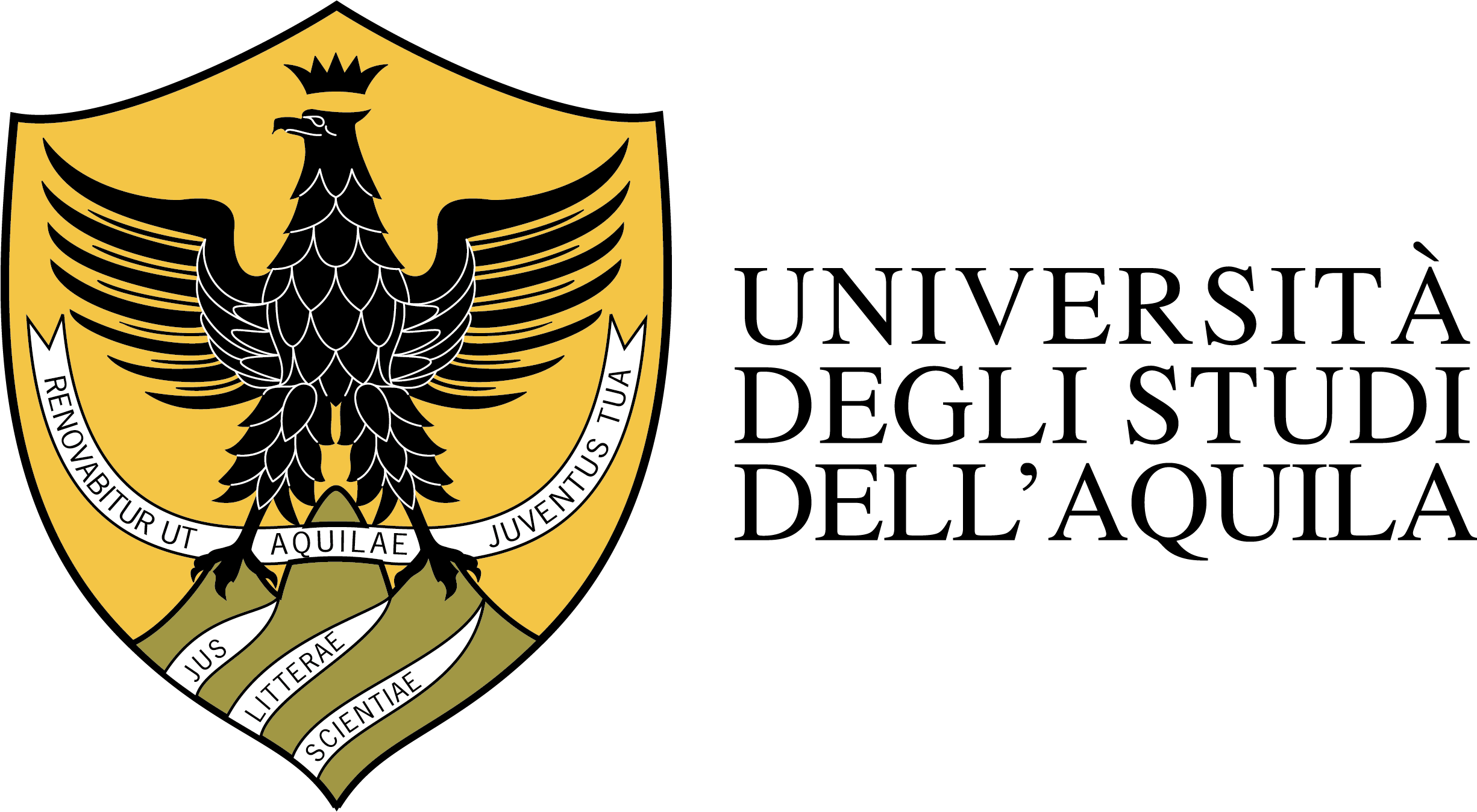Marina Prisciandaro
 |
Nome: Marina
Cognome: Prisciandaro Qualifica: Professore ordinario Settore Scientifico Disciplinare: ING-IND/25 (Impianti Chimici) Struttura di afferenza: Dipartimento di Ingegneria industriale e dell'informazione e di economia Email: marina.prisciandaro Telefono Ufficio: 0862 434241 Fax Ufficio: 0862 434254 Pubblicazioni: https://ricerca.univaq.it/cris/rp/rp00955 Home Page personale: https://orcid.org/my-orcid?orcid=0000-0002-9609-3402 |
| Insegnamento | Orario di ricevimento |
|---|
Curriculum scientifico
(Aggiornato il 27-01-2023) versione stampabile (pdf)
versione stampabile (pdf) Laureata cum laude in Ingegneria Chimica all'Università Federico II di Napoli, Ph.D. in Chemical Engineering, la prof.ssa Marina Prisciandaro è attualmente prof.ssa ordinaria di Impianti Chimici presso il DIIIE. E' la responsabile del laboratorio di Impianti Chimici , dove coordina il gruppo di ricerca che svolge attività di ricerca sperimentale e modellistica nel campo dell'ingegneria chimica e ambientale.
I principali temi trattati sono relativi all’area dell’impiantistica chimica, applicati fondamentalmente ai processi di trattamento dei fumi inquinati e al trattamento di acque reflue civili e industriali. Gli studi sono mirati alla rimozione e/o degradazione delle molecole inquinanti, al recupero dei sottoprodotti e al risparmio e riuso di acqua, nell’ottica di una economia circolare. Le tecniche sperimentali impiegate sono i processi a membrana (ultrafiltrazione e osmosi inversa), i processi di ossidazione avanzata (Fenton, cavitazione idrodinamica, trattamenti combinati), la cristallizzazione da soluzioni. Unitamente alla sperimentazione, il gruppo di ricerca Impianti Chimici svolge attività di simulazione mediante software dedicati (Aspen Plus, Aspen Hysys, ChemCad, SuperPro Designer), finalizzata all’ottimizzazione tecnica ed economica dei processi chimici e alla loro gestione efficiente in termini di consumi di acqua ed energia.
Graduated in Chemical Engineering at the University of Napoli Federico II; Ph.D. in Chemical Engineering. Actually, Full Professor of Chemical Plants at the Department of Industrial and Information Engineering and of Economy (DIIIE), L'Aquila University, and Head of the Laboratory of Chemical Plants.
The main topics covered in the research activity are related to the area of chemical and environmental engineering, principally applied to the treatment processes of flue gas and the treatment of civil and industrial wastewaters. The studies are aimed at the removal and/or degradation of polluting substances, the recovery of by-products, and the saving and reuse of water, with a view to a circular economy. The experimental techniques used are membrane processes (ultrafiltration and reverse osmosis), advanced oxidation processes (Fenton, hydrodynamic cavitation, combined treatments), crystallization from solutions, and adsorption. Together with experimentation, the research activity also provides for process simulation using dedicated software (Aspen Hysys, ChemCad, SuperPro Designer), aimed at the technical and economic optimization of chemical processes and their efficient management in terms of consumption of water and energy.
Indexed publications in peer-reviewed journals with Impact Factor (2020-today):
1. V. Innocenzi, M. Prisciandaro, F. Vegliò, Study of the effect of operative conditions on the decolourization of azo dye solutions by using hydrodynamic cavitation at the lab scale. Canadian Journal of Chemical Engineering 98 (2020), 1980-1988.
2. M. Capocelli, C. De Crescenzo, D. Karatza, A. Lancia, D. Musmarra, V. Piemonte, M. Prisciandaro. A Transport-Phenomena Approach to Model Hydrodynamic Cavitation of Organic Pollutants. Water (2020),12, 1564.
3. M. Prisciandaro, G. Mazziotti di Celso, A. Lancia, D. Musmarra, D. Karatza. Citric acid as a green additive to retard calcium carbonate scales on process equipment. Canadian Journal of Chemical Engineering 98 (2020) 1973-1979.
4. V. Innocenzi, Cantarini F., Amato A., Morico B., Ippolito N.M., Beolchini F., Prisciandaro M., Vegliò F., Case study on technical feasibility of galvanic wastewater treatment plant based on life cycle assessment and costing approach. Journal of Environmental Chemical Engineering 8 (2020) 104535.
5. V. Innocenzi, M. Prisciandaro, Technical feasibility of biodiesel production from virgin oil and waste cooking oil: comparison between traditional and innovative process based on hydrodynamic cavitation. Waste Management 122 (2021), 15-25.
6. V. Innocenzi, Cantarini F., Zueva S., Amato A., Morico B., Beolchini F., Prisciandaro M., Vegliò F. Environmental and Economic assessment of gasification wastewater treatment by Life Cycle Assessment and Life Cycle Costing approach. Resources, Conservation & Recycling 168 (2021) 105252.
7. V. Innocenzi, G. Mazziotti di Celso, M. Prisciandaro, Techno-economic analysis of olive wastewater treatment with a closed water approach by integrated membrane processes and advanced oxidation processes. Journal of Water Reuse & Desalination, 11 (2021) 122–135.
8. F. Ferella, Innocenzi V., Moretti G., Zueva S., Pellegrini M., De Michelis I., Ippolito N.M., Del Gallo M., Prisciandaro M., Vegliò F. Water reuse in a circular economy perspective in a microelectronics industry through biological effluents treatments. Journal of Cleaner Production, 320 (2021) 128820.
9. G. Mazziotti di Celso, M. Prisciandaro, Karatza D., Musmarra D., Lancia A. Study of the effect of leucine on calcium carbonate precipitation in a circular economy perspective. Water (2022) 14, 270.
10. V. Innocenzi, A. Colangeli, and M. Prisciandaro. Advanced oxidation processes for the removal of dyes from synthetic industrial wastewaters. Desalination and Water Treatment (2022), 259, 315-320.
11. V. Innocenzi, A. Colangeli, and M. Prisciandaro. Methyl orange decolourization through hydrodynamic cavitation in high salinity solutions. Chemical Engineering and Processing - Process Intensification (2022) 79, 109050.
12. V. Innocenzi, S.B. Zueva, N.M. Ippolito, F. Ferella, M. Prisciandaro, F. Vegliò. A review of the existing and emerging technologies for wastewaters containing tetramethyl ammonium hydroxide (TMAH) and waste management systems in micro-chip microelectronic industries, Chemosphere (2022) 307, 135913.
13. L.O. Conte, G. Legnettino, D. Lorenzo, S. Cotillas, M. Prisciandaro, A. Santos. Degradation of Lindane by persulfate/ferrioxalate/solar light process: influential operating parameters, kinetic model and by-products, Applied Catalysis B: Environmental (2023) 324, 122288.


